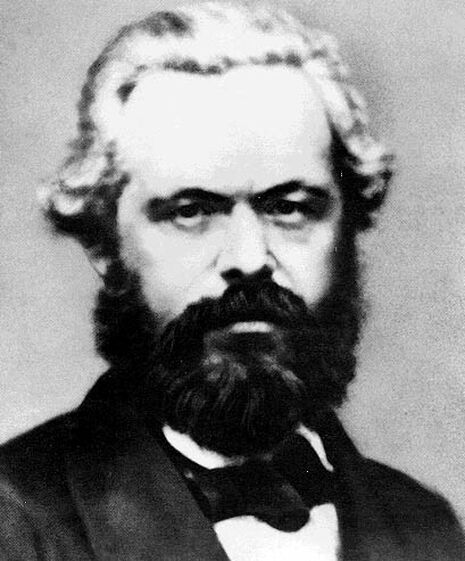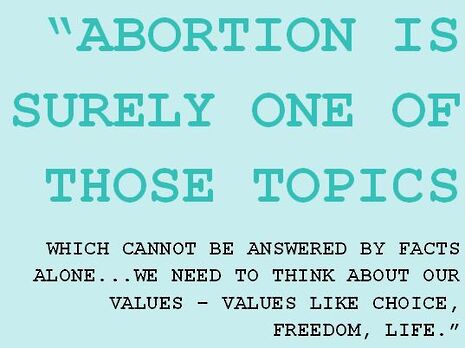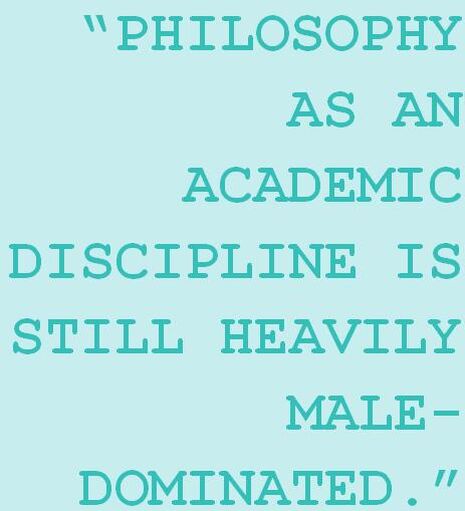Philosophers: more than bearded intellectuals
Philosophy is more than an academic discipline in itself; it should be central to the moral and principled debates we have everyday, says Ellen Judson.
A few weeks ago I received an email about a pro-choice abortion workshop, with the tagline ‘Let’s talk about abortion’; it explained what the workshop would involve, namely a free discussion about people’s opinions and understanding of abortion; the email included the caveat ‘Please note that this discussion will not focus on philosophical ideas’. As a philosophy student, I understood exactly what this meant. When running a workshop that is meant to be an open forum for people to discuss meaningful issues, the last thing anyone wants is someone coming in and arguing that on the choice theory of rights it is implausible that a foetus can be a right-bearer, or claiming that the debate rests on whether we subscribe to Locke’s theory of personhood, or asserting that any debate about morality is pointless as all we do in moral debate is express different emotions. Philosophical ideas do not help debate; they hinder it. And what else might we expect from a subject where, if you say you don’t believe modus ponens is true (if you don’t know what that is: congratulations, you aren’t a philosopher!), you will be laughed out of the building, but if you say that you believe torturing babies for fun is wrong you can be sure of finding someone who will disagree with you?

The thing is, isn’t discussing a topic like this really part of the point of philosophy? For me, the attraction of philosophy has always been that it tries to answer questions that other disciplines simply can’t – where we meet the limits of science, of maths, of theology, that is where philosophy comes into its own. And abortion is surely one of those topics which cannot be answered by facts alone – we can know all the biological facts, and sociological statistics about abortion, but somewhere along the way we need to think about our values – values like choice, freedom, life. And that’s where we start philosophising – even if we don’t realise it.
For example, take the controversy over offensive messages posted on Twitter; Paul Chambers was arrested for sending ‘menacing electronic communications’ after joking about blowing up Robin Hood Airport); it was ruled that Sally Bercow had ‘seriously defamed’ Lord McAlpine on Twitter; Paris Brown, the youth crime commissioner for Kent, was investigated over ‘racist’ and ‘homophobic’ tweets. Opinions are sharply divided as to which of these cases ought to be pursued by the police; there are fears over restricting freedom of speech, but then it seems we cannot allow people to say literally anything they want, or there is great potential for people’s lives to be destroyed, by, for instance, false accusations or violent action coordinated on social media. There is a line to be drawn between speech causing harm which outweighs the benefit of freedom of speech, and speech which, though perhaps distasteful or offensive, we do not wish to restrict for fear of giving the state that much control over what we say. And to find where that line should be drawn, we have to think about why we want freedom of speech; what the harm is; what different kinds of offence there are; what the role of the state should be in governing our actions – and philosophy is the discipline that seeks to answer these questions.

The current outcry over the GCHQ intelligence gathering is another perfect example – we feel that we have a right to privacy, but we also want to be protected by the state from terrorism; how far the pursuit of one goal can impose upon our rights is thus a crucial, and indubitably philosophical question.
Say ‘philosopher’, and most people will think of a middle-aged white man stroking his beard as he gazes into the middle distance and ponders the meaning of life; someone completely detached from reality, who doubts whether other people have minds and denies that he knows anything except the fact that he knows nothing; someone who has little of value to contribute to public debate. And the problem is, that this is in some cases not too far off the truth; philosophy as an academic discipline is still, at least, heavily male-dominated – for example, a study by Buckwater and Stilch showed that in a sample of 20 US universities, women accounted for less than 20% of ‘tenure-track positions’ in philosophy departments. In theCambridgefaculty, just 7 out of 29 teaching staff/research fellows are women. But the other problem is that because of this perception of philosophy, when philosophy does make an appearance in public life, it is not recognised as such; the Leveson enquiry, for example; a public enquiry into media ethics; whether or not to let Nick Griffin speak on Question Time; whether or not to deport Abu Qatada; if human embryos should be used in scientific research. These are all important, relevant issues, whose solutions have a real impact on our society and our lives; and while philosophy cannot solve them singlehandedly, it certainly has something to offer. But most people don’t think of these as philosophical issues at all – and that is what philosophers need to address.

Of course, every academic discipline has areas which are more or less related to our everyday lives; just like any other subjects, philosophy has areas which are fascinating to engage with on a purely intellectual level, and which don’t have all that much impact on the daily workings of society; the problem is that people think that this constitutes the entirety of philosophy, and that is simply not the case. An abortion workshop; a human rights debate; deciding what restrictions should be placed on pornography; these are forums where philosophical issues are at the forefront. A recent philosophy newsletter discusses the Cambridge Project for Existential Risk, which aims to establish a research centre into the risk posed by technological developments and was co-founded by Huw Price, the Bertrand Russell Professor of Philosophy. Philosophy is not just ancient Greeks with beards pontificating; it is present in every aspect of life, and it is up to philosophers to prove it.
 News / Christ’s announces toned-down ‘soirée’ in place of May Ball3 February 2026
News / Christ’s announces toned-down ‘soirée’ in place of May Ball3 February 2026 News / Deborah Prentice overtaken as highest-paid Russell Group VC2 February 2026
News / Deborah Prentice overtaken as highest-paid Russell Group VC2 February 2026 Fashion / A guide to Cambridge’s second-hand scene2 February 2026
Fashion / A guide to Cambridge’s second-hand scene2 February 2026 News / Right-wing billionaire Peter Thiel gives ‘antichrist’ lecture in Cambridge6 February 2026
News / Right-wing billionaire Peter Thiel gives ‘antichrist’ lecture in Cambridge6 February 2026 News / SU votes unanimously to support community kitchen4 February 2026
News / SU votes unanimously to support community kitchen4 February 2026









